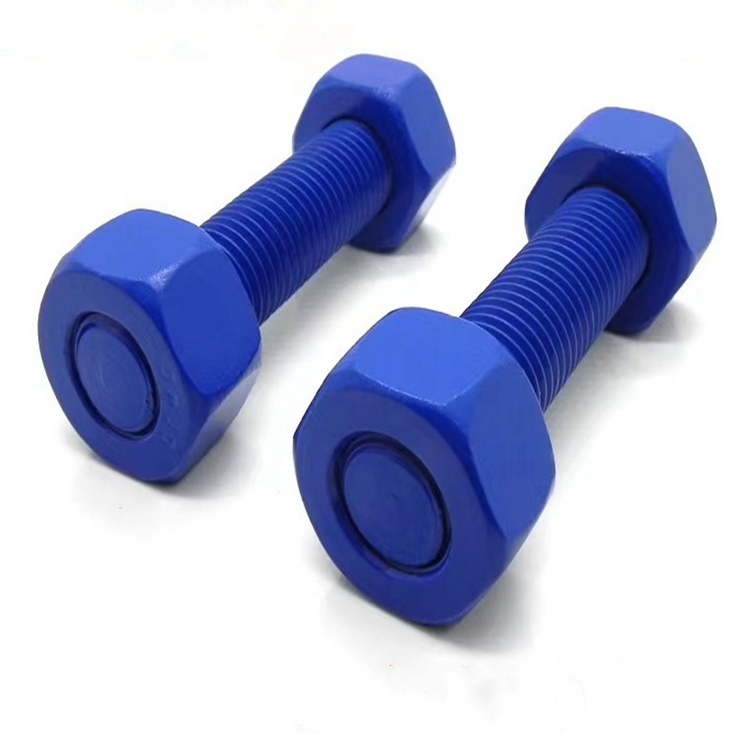Popular Carbon Steel Hex Bolts for Various Applications and Industries
Dec . 24, 2024 11:42 Back to list
Popular Carbon Steel Hex Bolts for Various Applications and Industries
The Significance of Famous Carbon Steel Hex Bolts in Modern Industries
In the realm of fasteners, carbon steel hex bolts stand out for their durability, strength, and versatility. These essential components are employed in an array of applications across various industries, proving to be a backbone for construction, automotive, and manufacturing sectors. Understanding the significance of carbon steel hex bolts is crucial for engineers, manufacturers, and DIY enthusiasts alike.
Composition and Properties
Carbon steel is an alloy that primarily consists of iron combined with carbon. The carbon content can vary, resulting in different grades of carbon steel, each with unique characteristics. Hex bolts made from carbon steel are known for their high tensile strength, which allows them to withstand heavy loads and resist shear forces.
One of the most famous grades of carbon steel used for hex bolts is ASTM A307, which is often selected for general fastening applications due to its good weldability and affordability. Another notable grade is ASTM A325, used in structural applications for its superior strength and performance in critical settings.
The manufacturing process of these hex bolts often involves heat treatment, which enhances their mechanical properties. This process not only increases hardness but also improves their resistance to wear and fatigue, making them suitable for demanding environments.
Design and Versatility
Carbon steel hex bolts are characterized by their six-sided (hexagonal) head, which allows for easy engagement with tools, such as wrenches and socket tools. This design feature is crucial in ensuring that the bolts can be tightened securely and reliably. Their threaded shank enables efficient fastening, providing a secure connection between two or more objects.
The versatility of carbon steel hex bolts is seen in their applications across multiple industries. In the construction sector, they are used to assemble structural frames, secure roofing materials, and connect various components in buildings and bridges. In automotive manufacturing, these bolts are used to assemble engines, chassis, and other critical systems, emphasizing their importance in ensuring vehicle safety and performance.
famous carbon steel hex bolts

Corrosion Resistant Options
While carbon steel hex bolts are robust, they are susceptible to corrosion, especially in environments where moisture and chemicals are prevalent. To mitigate this risk, many manufacturers apply coatings such as zinc plating, black oxide, or galvanization. These treatments enhance the bolts' resistance to rust, ensuring longevity and reliability in outdoor or industrial settings.
Stainless steel hex bolts are often compared to their carbon steel counterparts due to their superior corrosion resistance. However, carbon steel bolts are typically more cost-effective, making them a preferred option for large-scale projects where budget considerations are paramount.
The Cost-Effectiveness Factor
One of the most appealing aspects of carbon steel hex bolts is their cost-effectiveness. Given the high strength-to-cost ratio, these bolts offer a reliable solution for various fastening needs without breaking the bank. For manufacturers and project managers, this feature is particularly crucial when sourcing materials for large-scale operations.
Furthermore, the widespread availability of carbon steel hex bolts ensures that they can be sourced easily, making them a staple in hardware stores and industrial supply chains alike. This accessibility contributes to their popularity among both professional contractors and DIY enthusiasts.
Conclusion
In conclusion, famous carbon steel hex bolts play an indispensable role in the world of fasteners, noted for their strength, versatility, and cost-effectiveness. As industries continue to evolve, the demand for reliable fastening solutions remains crucial. Whether it’s in construction, automotive, or manufacturing sectors, the importance of these hex bolts cannot be overstated. Understanding their properties, applications, and potential for corrosion resistance allows professionals to make informed decisions that enhance safety and efficiency in their projects. As we look to the future, carbon steel hex bolts will undoubtedly remain a cornerstone of engineering and manufacturing excellence.
Latest news
-
High-Quality Bolts for Lawn Mower Handle Supplier & Manufacturer
NewsAug.21,2025
-
Reliable Axle Nuts Supplier | High-Quality Automotive Parts
NewsAug.19,2025
-
Premium Wire Bolts Suppliers | Durable & Reliable Fasteners
NewsAug.18,2025
-
Leading Metric Wood Screw Companies & Manufacturers
NewsAug.17,2025
-
Top Wire Bolts Suppliers - Quality & Durable Fasteners
NewsAug.15,2025
-
Trusted Wire Bolts Company | Quality Fasteners Supplier
NewsAug.14,2025
